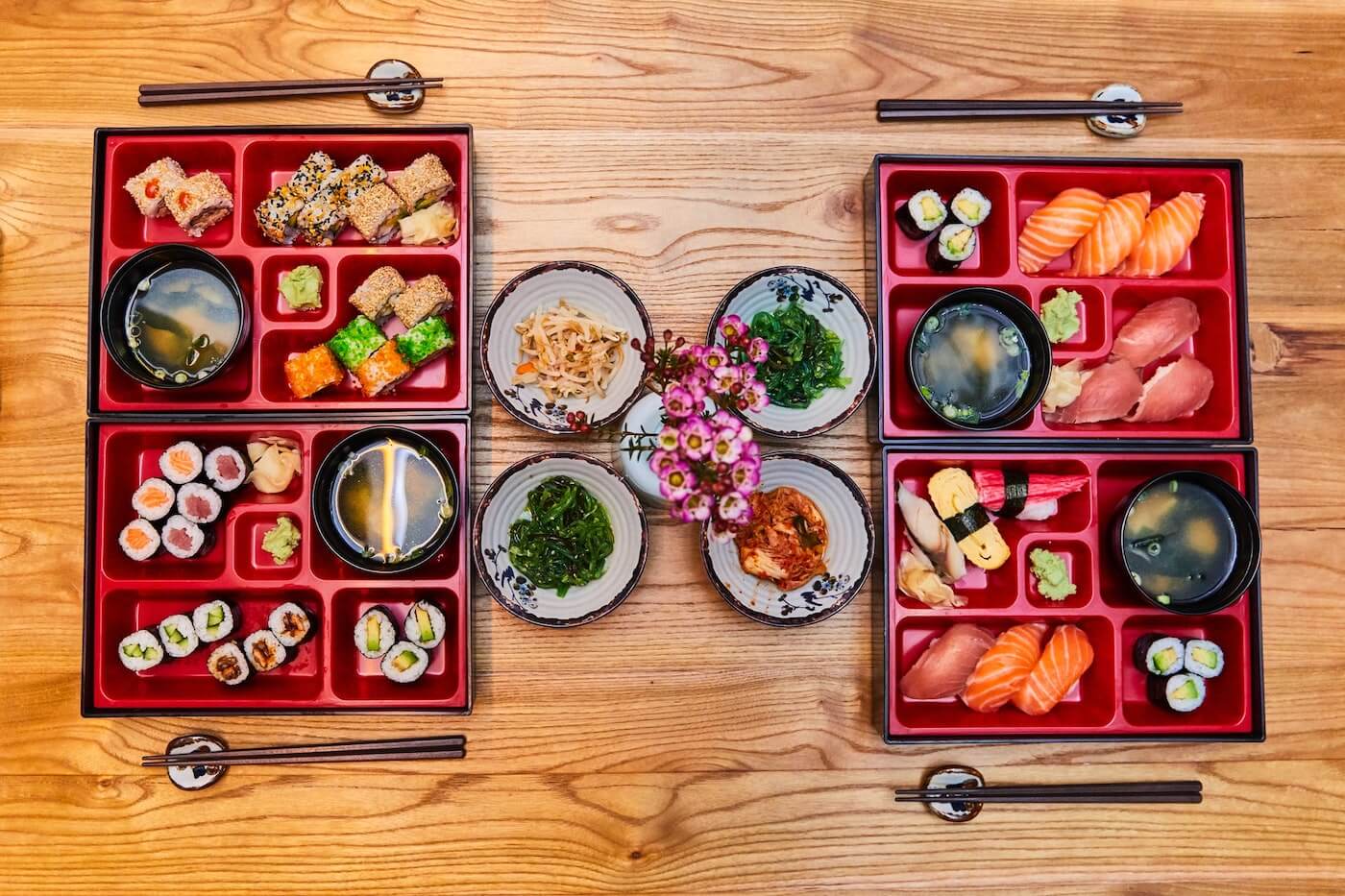
Ever wondered why Japanese cuisine holds such a special place in the hearts of foodies worldwide? Japanese food isn't just a treat for the taste buds; it's a deeply ingrained cultural experience that tantalizes all senses. From the meticulous preparation of sushi to the comforting warmth of a bowl of ramen, there's a story behind every dish. But hey, how much do you really know about this culinary wonderland? Prepare to be amazed as we dive into 16 fascinating facts about Japanese food that will leave you craving for more. Whether you're a seasoned sushi aficionado or new to the delights of Japanese cuisine, these tidbits will add a new layer of appreciation to your dining experience. Let's get ready to explore the delicious and intricate world of Japanese food, where every bite tells a story.
Key Takeaways:
- Japanese food emphasizes seasonal ingredients, umami, and presentation. It's deeply rooted in tradition, with dishes like sushi and ramen gaining global popularity. The diet's health benefits contribute to Japan's high life expectancy.
- Japanese cuisine has influenced global food trends, from sushi bars to bento boxes. Its emphasis on artistic presentation and use of ingredients like dashi has inspired chefs worldwide.
What Makes Japanese Food Unique?
Japanese cuisine, known as Washoku, stands out for its emphasis on seasonal ingredients, presentation, and the balance of flavors. This culinary tradition is deeply rooted in history and culture, making it a fascinating subject for food enthusiasts around the world.
-
Seasonality is at the heart of Japanese cuisine. Chefs pride themselves on using fresh, seasonal ingredients to create dishes that reflect the changing seasons.
-
The concept of umami, often described as a savory taste, is fundamental in Japanese cooking. It's considered the fifth basic taste alongside sweet, sour, bitter, and salty.
-
Japanese food is not just about taste; presentation is equally important. Dishes are carefully arranged to please the eye, with colors and garnishes chosen to complement the season and the dish's flavors.
The Influence of Tradition on Japanese Cuisine
Japanese food is deeply influenced by centuries-old traditions that have shaped its preparation and consumption.
-
Rice is the staple food and has been cultivated in Japan for over 2,000 years. It's so central to the diet that the word for cooked rice, gohan, also means "meal."
-
Sushi, one of Japan's most famous culinary exports, originated from a method of preserving fish in fermented rice. Today, it's enjoyed worldwide in various forms, from the traditional nigiri to the modern California roll.
-
Tea ceremony, or chanoyu, is a traditional ritual that involves the ceremonial preparation and presentation of matcha, powdered green tea. This practice highlights the Zen Buddhist principles of harmony, respect, purity, and tranquility.
Popular Japanese Dishes You Must Try
Japanese cuisine offers a wide range of dishes, each with its unique flavors and preparation methods.
-
Ramen is a noodle soup dish that has gained international fame. It consists of Chinese-style wheat noodles served in a meat or fish-based broth, often flavored with soy sauce or miso, and uses toppings such as sliced pork, nori (dried seaweed), and green onions.
-
Tempura is another beloved dish, featuring seafood or vegetables that have been battered and deep-fried, resulting in a light, crispy coating.
-
Okonomiyaki, sometimes referred to as Japanese savory pancake, is made with flour, eggs, shredded cabbage, and various ingredients such as seafood, meat, and cheese, all cooked on a griddle.
Health Benefits of Japanese Food
The Japanese diet is often cited as a reason for the country's high life expectancy. Its health benefits are attributed to the diet's emphasis on fresh, minimally processed foods.
-
A typical Japanese meal is balanced with grains, soup, vegetables, and fish or meat, providing a wide range of nutrients without excessive calories.
-
Fermented foods like miso, natto (fermented soybeans), and pickled vegetables are staples in the Japanese diet, offering probiotics that support gut health.
-
The consumption of green tea is widespread in Japan, providing antioxidants that have been linked to a reduced risk of heart disease and certain types of cancer.
The Global Influence of Japanese Cuisine
Japanese food has made a significant impact on the global culinary scene, inspiring chefs and home cooks alike.
-
Sushi bars and ramen shops have become commonplace in cities around the world, introducing people to the flavors of Japan.
-
Japanese cooking techniques and ingredients, such as dashi (a simple broth made from kelp and bonito flakes), have influenced chefs globally, encouraging them to incorporate these elements into their dishes.
-
The concept of kaiseki, a traditional multi-course Japanese dinner, has inspired Western chefs to adopt a similar approach to meal presentation and course sequencing, focusing on seasonal ingredients and artistic presentation.
-
Finally, the bento box, a single-portion take-out or home-packed meal common in Japanese cuisine, has gained popularity worldwide as a convenient and balanced meal option, reflecting the Japanese emphasis on aesthetics and nutrition in food.
A Culinary Voyage Ends
We've journeyed through the intricate and flavorful world of Japanese cuisine, uncovering 16 amazing facts that highlight its depth, diversity, and cultural significance. From the meticulous preparation of sushi to the communal joy of hot pots, these insights offer a glimpse into a culinary tradition that's both ancient and ever-evolving. Japanese food isn't just about satisfying hunger; it's an art form, a way of life, and a bridge connecting people to Japan's rich history and vibrant present. Whether you're a seasoned foodie or just starting to explore international cuisines, these facts serve as an invitation to dive deeper into the delicious and fascinating world of Japanese food. So, grab your chopsticks, and let's keep discovering the flavors that make Japanese cuisine a beloved treasure around the globe.
Frequently Asked Questions
Was this page helpful?
Our commitment to delivering trustworthy and engaging content is at the heart of what we do. Each fact on our site is contributed by real users like you, bringing a wealth of diverse insights and information. To ensure the highest standards of accuracy and reliability, our dedicated editors meticulously review each submission. This process guarantees that the facts we share are not only fascinating but also credible. Trust in our commitment to quality and authenticity as you explore and learn with us.


